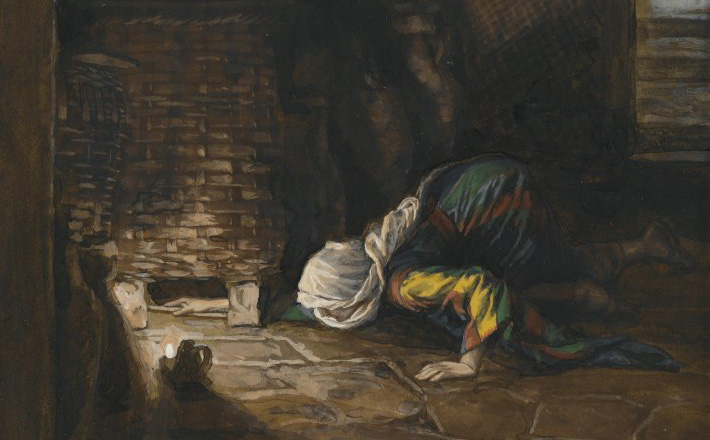Commentary on Exodus 32:7-14
I suggest we discontinue referring to this text as the “golden calf” incident and begin calling it the “God changes God’s mind at the request of Moses” incident.
It is no longer shocking that the Israelites’ impatience while waiting for Moses leads to idolatry. What is shocking is God’s anger and, even more, Moses’ ability to quell God’s anger. Given God’s own admission of jealousy (Exodus 20:5), perhaps we should not be too surprised at God’s anger. But this divine tirade (32:7-11) is not for the meek. It is a good thing the Israelites were not privy to the tirade, otherwise they most certainly would have run to their gods for protection against God.
God refers to the Israelites as those whom Moses brought out from the land of Egypt. This is interesting since earlier God had said God brought them out of the land of Egypt (Exodus 20:2). God calls them names: stiff-necked people. And worse, God wants to be left alone to wallow in anger and to “consume” the idolaters. If that is not enough, God seems to bribe Moses to leave him alone (32:10). If Moses does so, God will make of him a great nation. Anger, tirade, blame, name-calling, destruction, bribery; this is not God at God’s best. Shocking. The bottom line is that idolatry is a serious offense, which will not be ignored by God.
God’s seemingly resolute behavior, seemingly un?t for the divine, makes it even more shocking when Moses is able to change God’s mind. He does so by reminding God that it was God who brought the people out of the land of Egypt. He reminds God of God’s power and might. He reminds God of God’s promise to Abraham, Isaac, and Israel to multiply their descendants. Killing the Israelites now would not foster offspring and certainly would give the Egyptians the edge. Moses’ threefold imperative — “Turn from your ?erce wrath,” “Change your mind,” “Do not bring disaster on your people” — is bold but effective. God does change God’s mind.
On this 15th anniversary of the September 11th attacks, I wonder who we need to intervene on our behalf. I wonder if in our impatience we have bowed to more tangible, accessible, and shinier gods rather than relying the one who brought us out of the power of sin, death, and the devil. Yes, I wonder how (I do hope it’s how and not if) God quells God’s anger at such atrocities.
We don’t even have to go as far back as 15 years. Nearly every day in the news we are reminded that, as a whole, humanity (we!) fall short of God’s will for us. That is not shocking news anymore. While I do not desire to minimize the depth of our idolatrous tendencies (I want to be clear that this is not what I am aiming for when I suggest that we refrain from calling Exodus 32 the “golden calf incident”), I do think the more shocking and profoundly hopeful news here is that God sticks with us; God continues to claim us as God’s own despite it all. Instead of God’s wrath burning hot against us and consuming us (vs. 11), God’s beloved son reminds us there is joy when even one sinner repents (Luke 15:10).
Instead of waiting for an Aaron to help us offer burnt offerings and sacrifices to gods of our own making … instead of waiting for a Moses to intervene on our behalf, we might ourselves and on this day especially pray the Psalmist’s prayer as our own, “Create in us clean hearts, O God, and put a new and right spirit within us” (Psalm 51:10).


September 11, 2016